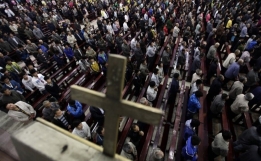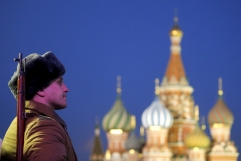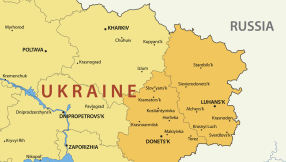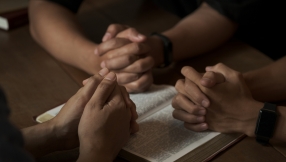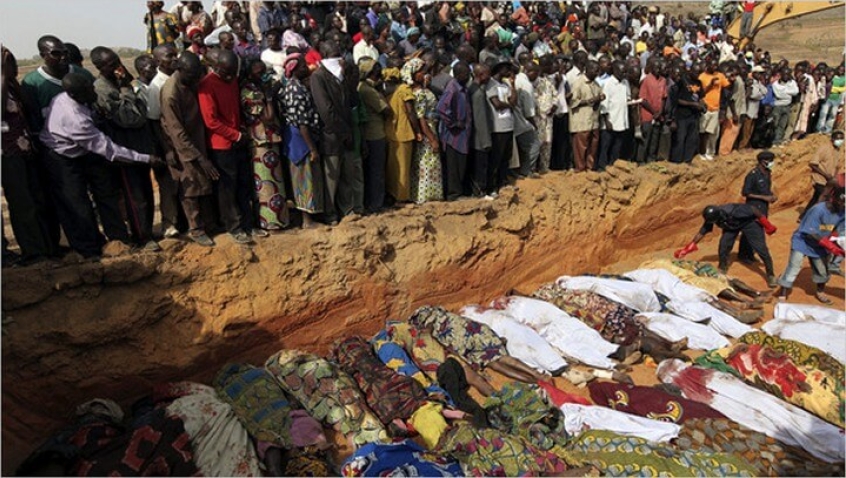
A horrific catalogue of human rights abuses of Christians and other believers is listed in the latest freedom of religion or belief report from the European Union.
The report calls on the EU to "use political and financial power to end persecution of religious minorities worldwide."
It finds "significant restrictions" exist on religion worldwide, including the near extinction of Christians in Syria and Iraq.
The two MEPs who chair the group, Peter van Dalen and Dennis de Jong, particularly highlighted the suffering of Christians and other minorities at the hands of Islamic State.
The report finds global restrictions in 53 countries to freedom of religion or belief.
Van Dalen said: "Our beliefs are at the core of our human dignity – tragically, however, today not everyone enjoys the freedom to hold and manifest their beliefs. We have witnessed the near extinction of Christians in Iraq and Syria; a 150 per cent rise in violent faith-related incidents in Inida since 2014; and in Pakistan the injustice of Asia Bibi's death sentence for blasphemy continues. In this report we outline practical recommendations for how the EU can act to help find solutions to cases like these. Freedoms of religion or belief must be higher on the EU's agenda."
De Jong said: "Regrettably, we observe that the EU, in its external actions, continuously compromises its human rights agenda in favour of a more economic and geopolitical agenda. We have witnessed a concerning lack of expertise and knowledge on the EU Guidelines – especially in EU delegations. I am particularly disappointed that no reporting was undertaken for the focal countries that appeared in our report last year, and urge the EEAS to rectify this for focal countries this year."
Countries of particular concern included the Central African Republic, with a population of 5.3 million of which 80 per cent are Christian, and where 36,000 Muslim civilians remain trapped in areas besieged by anti-Balaka Militia.
The predominantly Muslim Ex-Seleka forces are also continually attacking the Christian civilian population, and between January and April 2015 killed 1,269 Christians.
Nigeria, with a population of 180 million, with 90 per cent Muslims Christian, has Sharia courts in 12 northern states and there have been cases where non-Muslims have been forcefully brought before sharia courts and suffered punishments such as caning, amputation and death by stoning for blasphemy and other offences.
In addition, the Fulani Militia, categorised the fourth most deadly terror group in the world, have killed more than al-Shabaab and Boko Haram. More than 4,000 Christians were killed in Nigeria because of faith-related reasons in 2016 and 198 churches were attacked, damaged or destroyed between November 2014 and October 2015.
In Somalia, with a population of more than 10.4 million, nearly all Muslim, the violent Islamist group and Al-Qaeda affiliate Al-Shabaab imposes its dogma "by harassing, maiming, or killing people who are suspected of converting from Islam or who are failing to uphold the principles of Islam," the report says. Since 1993, there has been policy of religious cleansing and the group has declared it "wants Somalia free of any Christians."
In Iraq, where most of the 32.6 million population is Muslim, Christians are forced to convert to Islam, pay the Jizya tax or otherwise face execution. The 2,000-year-old Christian community in Iraq is facing extinction, the report says, and estimates suggest that Christians in Iraq have fallen from 1.2 million in the 1990s to 500,000 in 2013, to 260,000 in 2015.
In Saudi Arabia, where the 27.3 million population is almost entirely Muslim, the report says government restrictions constitute "the most severe violations of the freedom of religion or belief in the world." Apostasy, blasphemy, "sorcery" and peaceful dissent are punishable by death.
In Iran, where Muslims make up 99 per cent of the population, the Baha'i Faith is considered a "political sect" and Baha'is are deemed apostates by the government and denied civil rights. Members of the Baha'i community are banned from higher education, denied the right to establish and maintain religious institutions and excluded from the social pension system.
The Christian community also faces "systematic persecution and prosecution" by the Iranian regime and as of February 2015, about 90 Christians languish in prison, are detained, or await trial because of their religious beliefs and activities. There has also been a "significant increase" in the number of physical assaults and beatings of Christians in prison.
In Sudan, where 96 per cent of the 35.5 million population is Muslim, blasphemy carries a six-month prison sentence, flogging or a fine. Proselytism is not illegal but conversion from Islam to another religion is punishable by death. Since 2011, more than 170 people have been arrested for attempting to convert Muslims. In June 2015, Sudanese authorities arrested Fardos Al Toum and nine other women at a church because they wore jeans and long shirts, deemed as an indecent, the report says. Al-Toum was sentenced to 20 lashes and a fine.
In Syria, mostly Muslim, there has been "brutal ethnic and religious cleansing" by Islamic State of Christians, Yazidis and other minorities.
Massacres carried out by the Islamic state against religious minorities – sometimes involving entire towns – have been called "genocide" by several international bodies, including the European Parliament. One of the worst atrocities in 2015 was in Palmyra, where around 400 people were slaughtered, many of them women and children. In Aleppo just 60,000 Christian individuals remain, down from 400,000.
The organisation ADF International did the legal analyses of countries including Nigeria, Nepal, Bahrain, Algeria, Sudan, Marocco, Iraq, Tajikistan, India, Nepal. Drawing from their research for the universal periodic reviews for the United Nations on countries worldwide, its lawyers have this year added several new countries to the report.
"We cannot accept that people today are being killed, tortured, or oppressed, simply because of their religious convictions or beliefs," Sophia Kuby, director of EU advocacy for ADF International told Christian Today after the report was presented to the European Parliament.
"The annual Report on Freedom of Religion or Belief is an important instrument to promote religious freedom both inside and outside the EU. It will effectively help us to address religious persecution throughout the world and ensure that the European Union uses its political and financial power to safeguard the fundamental rights of religious minorities in all countries."











